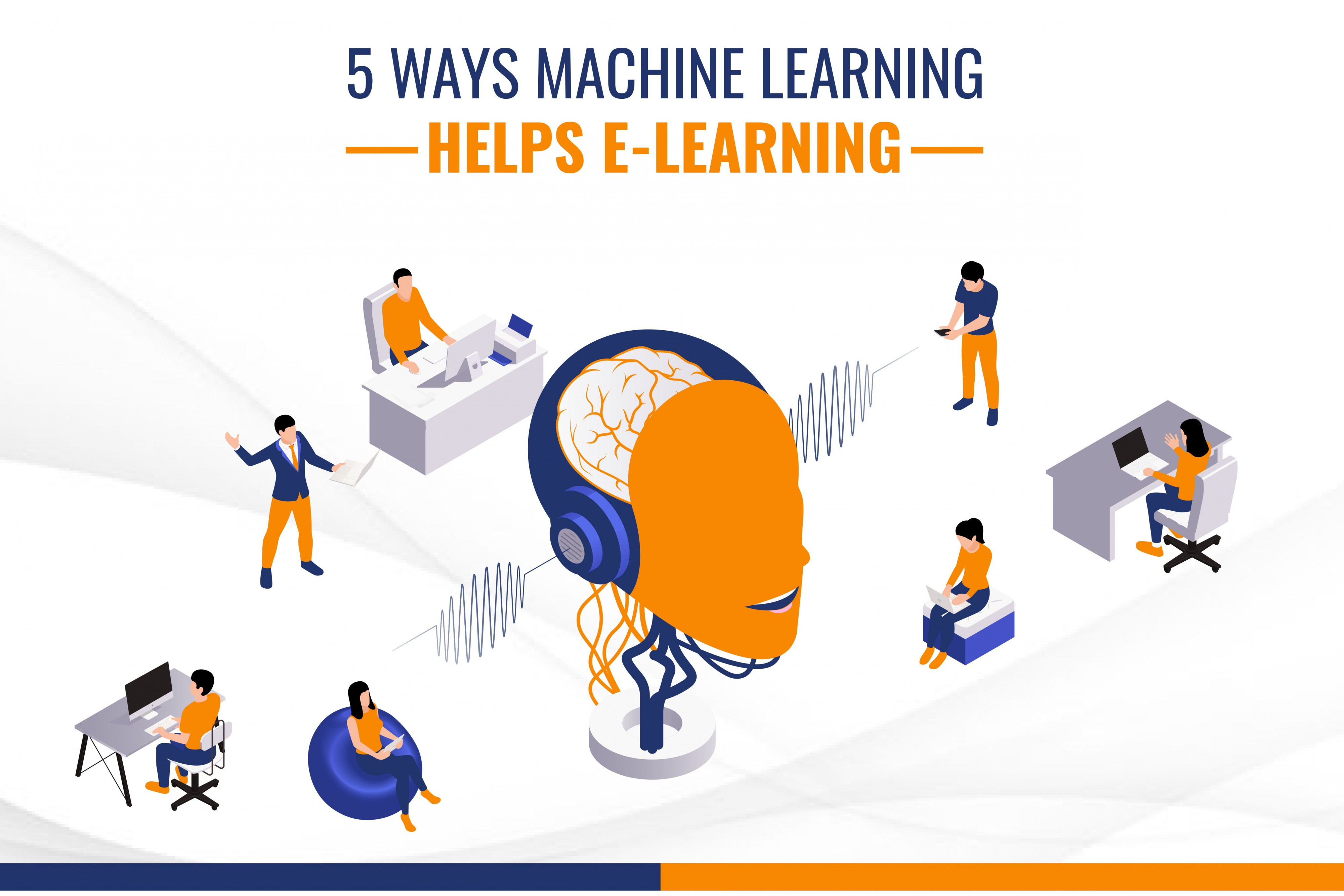
5 Ways Machine Learning Helps eLearning
In this fast-paced digital age, the world of education is continually evolving, and eLearning has become an integral part of it. With the advent of machine learning, the eLearning experience has been revolutionized, providing learners with personalized and efficient ways to acquire knowledge. Machine learning, a subset of artificial intelligence, empowers eLearning platforms to analyze data, recognize patterns, and make informed decisions to enhance the learning process. In this article, we will explore the five ways machine learning helps eLearning, making it more engaging, effective, and tailored to individual needs.
The 5 Ways In Which ML Helps eLearning
1. Personalized Learning Paths: Adapting to Every Learner
Personalized learning paths, driven by machine learning algorithms, have revolutionized the eLearning landscape. These algorithms possess the remarkable ability to analyze extensive data on learners' preferences, strengths, and weaknesses. The result? eLearning platforms now provide tailored educational experiences that align precisely with each individual's distinctive learning style. Gone are the days of a rigid one-size-fits-all approach; learners can now embark on a fully customized journey, where content is delivered at a pace and in a format best suited to their needs.
As a consequence, learners grasp complex concepts with greater efficiency and maintain heightened motivation throughout their entire educational odyssey. This personalization fosters a profound connection between learners and their subjects, igniting a passion for continuous learning and knowledge acquisition.
2. Intelligent Content Recommendations: Enhancing Engagement
Integrating machine learning into eLearning platforms has led to the introduction of intelligent content recommendations, revolutionizing learner engagement. By leveraging data on a learner's past interactions and progress, the system can analyze behavior patterns to offer personalized suggestions. Learners are presented with relevant courses like Technical Training Courses, supplementary materials, and quizzes that align precisely with their interests, creating a captivating and tailored learning journey.
Moreover, these recommendations serve as a gateway to explore related topics that learners might not have ventured into otherwise, enhancing their overall educational experience. As learners immerse themselves in topics that resonate with their passions, they develop a deeper connection with the subject matter, fostering a thirst for knowledge and a profound sense of accomplishment throughout their eLearning endeavors.
3. Automated Grading and Feedback: Saving Time for Educators
With the integration of machine learning algorithms, the grading process in eLearning undergoes transformative automation, allowing educators to reclaim valuable time for more impactful tasks. As these algorithms evaluate assessments and assignments, learners receive immediate feedback, elevating their comprehension of the subject matter. The benefits extend to educators, who gain data-driven insights to identify areas of improvement and adapt instructional strategies for optimal learning outcomes.
Freed from the burden of manual grading, educators can focus on providing personalized feedback and honing their teaching methods, creating a nurturing and supportive learning environment, and making the Technical Training Development process more advanced and targeted.
Learners, in turn, experience accelerated growth and progress as they receive prompt guidance on their performance. The automation of grading and feedback ensures an efficient educational journey, enabling educators to become facilitators of knowledge and mentors, guiding learners toward academic excellence.
4. Predictive Analytics: Identifying At-Risk Learners
Harnessing the capabilities of machine learning, predictive analytics emerges as a crucial tool in identifying at-risk learners within the realm of eLearning. Armed with vast troves of data encompassing engagement levels, assessment scores, and learning patterns, the system adeptly detects learners who may face challenges in staying on course or even risk dropping out. This invaluable insight enables educators to proactively intervene, offering timely support and additional resources to bolster these learners' educational journeys. Also, organizations must provide Corporate Technical Training to retain and hone their best talents.
By nipping potential obstacles in the bud, educators pave the way for at-risk learners to overcome hurdles and progress confidently toward their learning objectives. Predictive analytics empowers educators to be vigilant advocates, addressing learners' needs promptly and strategically, ultimately cultivating an environment where no learner is left behind. Through this proactive approach, eLearning platforms can instill a sense of resilience and determination in learners, guiding them towards success and accomplishment.
5. Natural Language Processing (NLP): Enhancing Communication
The integration of machine learning's natural language processing (NLP) capabilities has wrought a profound transformation in communication within eLearning platforms. Learners now have the privilege of interacting with virtual tutors or chatbots using natural language, effortlessly posing questions, and seeking clarifications. NLP algorithms exhibit an uncanny ability to comprehend the context and intent behind these inquiries, promptly delivering precise and relevant responses.
This seamless interaction fosters a sense of genuine engagement, mirroring the experience of engaging in a one-on-one conversation with an actual educator. Learners no longer feel isolated or alienated; instead, they revel in the immersive learning experience facilitated by NLP. This process can also be carried out while providing Corporate Technical Training to remote employees.
Virtual tutors or chatbots serve as knowledgeable companions, guiding learners through their academic quests and nurturing their curiosity. With NLP at their disposal, eLearning platforms pave the way for a dynamic and interactive educational journey, where learners can thrive and flourish in a supportive digital ecosystem.
Endnote
Machine learning has undoubtedly transformed the landscape of eLearning, making it more personalized, engaging, and effective. With personalized learning paths, intelligent content recommendations, automated grading, predictive analytics, and natural language processing, learners can have a seamless and fruitful learning experience. Educators, on the other hand, benefit from data-driven insights that enable them to provide targeted support and improve their instructional strategies. As technology continues to advance, the synergy between machine learning and eLearning will only grow stronger, shaping the future of education for generations to come.
